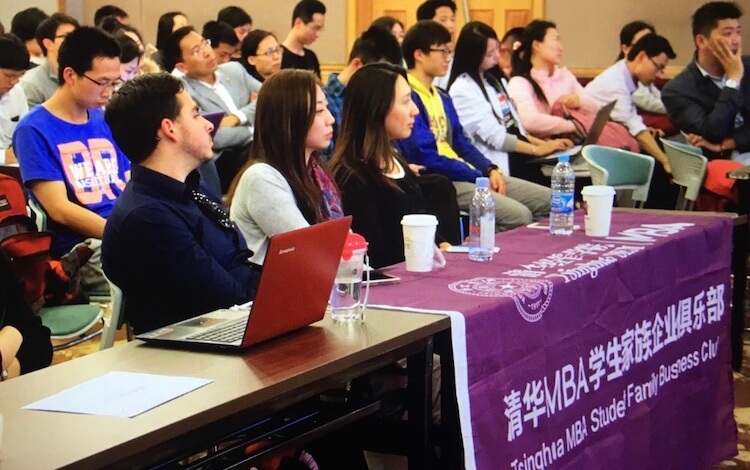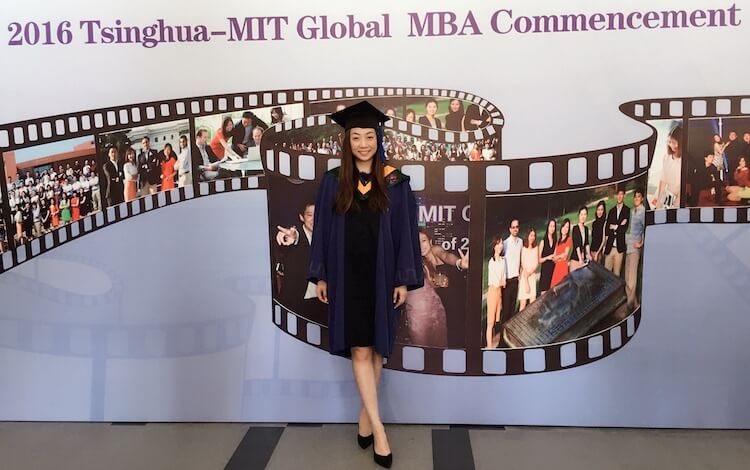Christina Chong’s father set up his aviation business in the late 1970s, when China first opened its doors to the West. Based out of China's Hong Kong, he started selling aircraft interior products to the commercial aviation market in China and Southeast Asia.
Back then, there were just a handful of commercial airlines in China and Christina’s father would travel across Europe and the United States to source fittings and textiles for the new Chinese planes.
Today, China operates nine of the world’s 50 busiest airports. The International Air Transport Association (IATA) says global passenger numbers could double to 8.2 billion by 2037 and this growth is driven by the Asia-Pacific region, with China set to overtake the US to become the world’s largest aviation market in the next few years.
Christina, who started working for her family aviation business after undergrad, always knew she needed to learn more about business in Chinese mainland.
Boom in aviation management jobs!

With the aviation industry on the up, there are many aviation management jobs available to MBA grads; from airline managers, to airport managers, managers across areas like human resources and operations; and consultants focused on aviation.
Salaries for aviation managers can reach upwards of $150,000 per annum and there are exciting career opportunities available at top global firms like United Airlines, Delta Airlines, British Airways, Boeing, and FedEx.
Doing an MBA, says Christina, will give the skills professionals need to stand out in a booming industry. Christina, who studied design at Central Saint Martins, University of the Arts London in the UK before moving back to Hong Kong, then did an internship at her family business and decided to stay. It was an experience, she says, which led her to an MBA.
She joined the 21-month Tsinghua-MIT Global MBA Program, a collaboration between Tsinghua University School of Economics and Management (Tsinghua SEM) in Beijing and MIT Sloan.
“I realized I needed some hard business skills,” Christina explains. “When you’re working in a family business, you’re in charge. You need to understand all areas of the business, like accounting, finance, and operations. Coming from a design background, I was trained to think outside of the box, but I needed that more structured side.
“In a family business, you’re not just working for yourself,” she continues. “You have to take care of your employees. You have to constantly think whether you’re living up to the standards set in the past and how you’re going to maintain the business, bring it to another level, and pass it down to the next generation.
“A big part of our business is in China and, after living in the UK and China's Hong Kong, I felt like it was the right time to be in Chinese mainland and experience living there.
Applying MBA skills to aviation

Christina continued to work in business development alongside her MBA, travelling to Europe and between her family company’s offices in Beijing, Guangzhou, and Hong Kong. It was a challenge, she says, but it was worth it. During her MBA, Christina built up the skills and the international network she needed to benefit the business.
She took part in Tsinghua’s China Lab program, where MBA students from Tsinghua and MIT Sloan work together on China-focused consulting projects. Christina’s team was charged with creating a WeChat marketing strategy for insurance firm AXA’s car insurance business in China.
“Because of the time difference between China and the US, we formed a very efficient team; we were basically working 24 hours!” Christina recalls. “We had routine calls with the team from AXA, and we spent a week together working with AXA in their office in Shanghai and then another week at MIT, before pitching to them.
“The whole process of working on a consulting project was something I hadn’t done before. From the experience, I understood the way consultants work; the research and the frameworks they use. Now when I work on strategy for my company, I apply what I learned on the MBA.”
Christina established the Family Business Club at Tsinghua, to support fellow MBA students in family businesses, and worked as a teaching assistant on the Tsinghua-ENPC-ENAC (TEE) Executive MBA Program, a joint EMBA program with two French business schools focused on aviation management.
“Sitting in those classes and meeting the EMBA students—that benefited me a lot. When I graduated, I was linked to another opportunity teaching aviation management to undergrads at a university in Hong Kong.
How to succeed in the aviation industry

Christina completed her MBA at Tsinghua in 2016. By 2017, the number of passengers travelling by air in China increased to 551 million—one-eighth of the world’s total passenger air traffic for that year.
After her MBA, Christina was appointed as a member of the Hong Kong SAR Government Aviation Development and Third Runway Advisory Committee; a role in which she can help shape the future of the aviation industry in Hong Kong.
For Christina, the Tsinghua MBA was an investment in herself and her family. But for anyone interested in applying for aviation management jobs, Christina explains, an MBA can give you a new perspective.
For business generalists, an MBA is a way to explore and switch into a chosen industry. For specialists, like engineers or pilots in the aviation industry, an MBA can open the door to higher-level management roles.
“The demand for air transport is increasing every year and the industry needs more and more people,” Christina explains. “Network-wise, after Tsinghua I have a network of friends all over the world. If they meet someone in aviation, I know they’ll connect me with them.
“In the aviation industry, a combination of hard work, experience, and an MBA degree, will help you get ahead.”
By Marco De Novellis